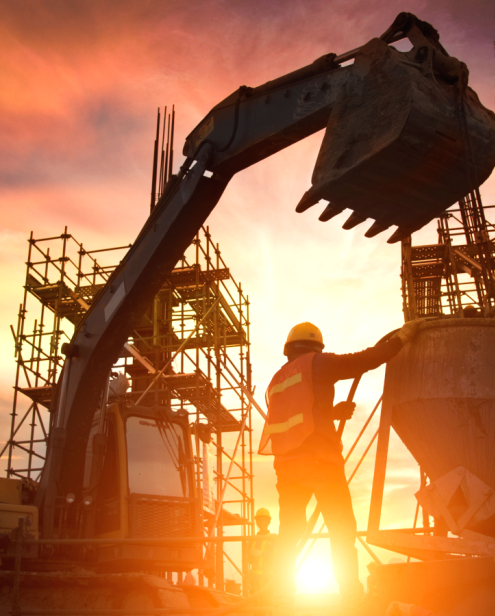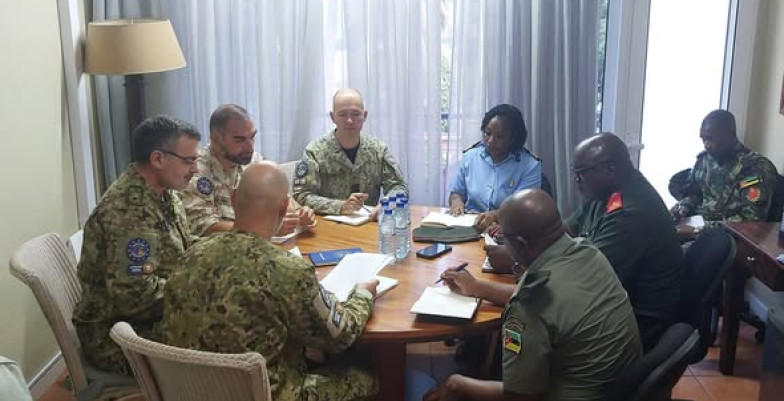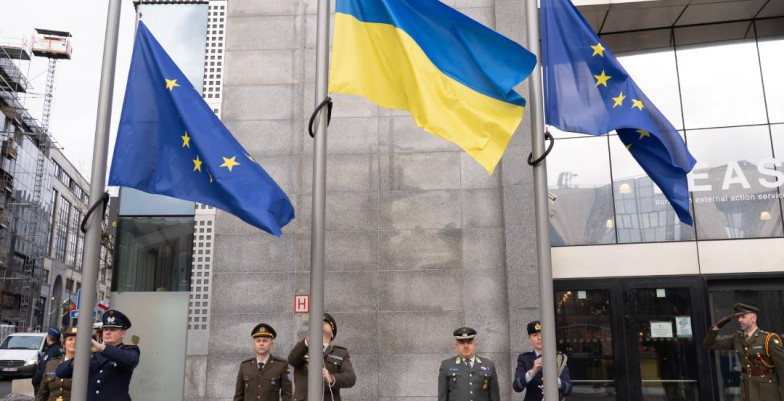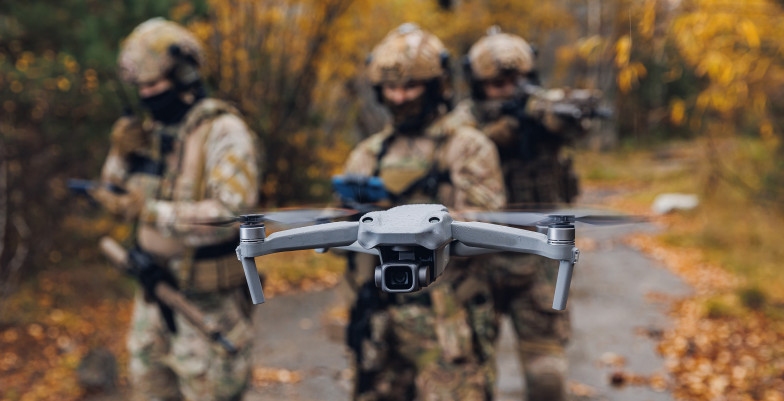A stronger Europe through partnerships
Navigate the topic
The EU in the G20
The Group of 20 (G20) is the international forum that brings together the 21 largest and fastest-growing economies in the world. It is a pillar of multilateral cooperation and a key forum for the European Union (EU) to address global challenges. In 2023, under the Indian Presidency of the G20, the African Union (AU) was welcomed as a permanent member of the G20. The EU has been a strong advocate for the inclusion of the AU as a full member of the G20.
Together, the members of the G20 account for more than 85% of the world's gross domestic product (GDP), 75% of global trade and 83% of the planet’s population.
The EU is a full permanent member of the G20, along with three of its Member States: France, Germany and Italy. In 2025, Spain, the Netherlands and Ireland are invited guest countries.
Ursula von der Leyen, President of the European Commission, and António Costa, President of the European Council represent the EU at the annual G20 summit.
As one of the largest economies in the world and the world’s largest single market area, the EU represents roughly 14,7% of world gross domestic product (2024). It accounts for around 6% of the world’s population.
South Africa Summit 2025
South Africa is holding the G20 Presidency in 2025 under the theme “Solidarity, Equality, Sustainability”. It is the first time the African continent hosts the G20. The Leaders’ Summit is scheduled to take place on 22 and 23 November 2025 in Johannesburg.
Rio De Janeiro Summit 2024
Last year’s G20 Summit was hosted by Brazil in Rio de Janeiro in November. Under the theme “Building a Just World and a Sustainable Planet” the participants discussed, amongst other topics:
- Geopolitics, including Russia’s war against Ukraine and the crisis in the Middle East
- Fight against hunger and poverty and the launch of the Global Alliance Against Hunger and Poverty
- Social inclusion
- Just Energy transition
- Global Governance Reform, including the international financial system and taxation
- Acceleration of climate action
- Inclusive multilateral trading system
- Promoting the ethical development of artificial intelligence
- Mobilising resources for basic sanitation and access to drinking water
- Addressing racism and promoting racial equality as part of the effort to combat inequalities.
Follow the link to learn more about the G20 organisation.
Global infrastructure investment
At the G20 Summit in New Delhi, President von der Leyen emphasised the EU’s key contribution to two flagship projects of the G7’s Partnership for Global Infrastructure and Investment (PGII) initiative.
The India – Middle East – Europe Economic Corridor will link the three regions through state-of-the art connectivity infrastructure. It will bring the economic relationship between these regions to a new level, providing citizens and businesses with improved access to goods, energy and data.
The goals of this initiative are to:
- Integrate railway lines and port connections from India to Europe, allowing smoother and faster transit time for goods.
- Develop energy infrastructure for the production and transport of green hydrogen.
- Strengthen telecommunications and data transfers thanks to a new undersea cable connection.
The EU is also joining forces with the US to promote the Trans-African Corridor project. This will connect the port of Lobito in Angola with the Katanga region in the Democratic Republic of Congo and the copper belt in Zambia. The aim is to foster investment in local value chains to process raw materials, create access to world markets for products from these regions and improve mobility opportunities for citizens.
Through the Global Gateway Initiative, EU is a key actor in the PGII. The Global Gateway will invest €300 billion in critical connectivity projects between 2021-2027. Half of the money is destined for initiatives in Africa.
- Follow the link to learn more about the EU’s Global Gateway
- Follow the link to learn more about the UN’s Sustainable Development Goals (SDGs)
EU Partners
The EU works very closely with and in other international organisations and entities, such as the Organisation for Economic Co-operation and Development, the World Trade Organisation, the Council of Europe, the Organisation for Security and Cooperation in Europe, and the North Atlantic Treaty Organisation.
To promote international peace, human rights and development, the EU works closely with Geneva based organisations to better tackle migration (IOM), to promote decent work for all (ILO) and public health worldwide (WHO), and to support a multilateral approach to security, disarmament and non-proliferation.
Finally, the EU seeks closer cooperation with other regional and multinational organisations such as the African Union, the Organisation of the African, Caribbean and Pacific States, the Association of South-East Asian Nations or the Community of Latin American and Caribbean States to address common challenges and to work together at the international level. For example, the EU works very closely with the AU and the UN – trilateral cooperation –in areas of mutual interest with a view to promoting peace, stability and development in Africa.
The EU is committed to building a more inclusive and effective multilateralism. To this end, it actively engages not only with governments but also with civil society, the private sector, social partners, and other stakeholders, recognising their essential role in shaping and implementing global solutions.
Cooperation with the Council of Europe
The Council of Europe (CoE) is a key strategic partner of the European Union and an important actor in the multilateral system. Its standard-setting role contributes substantively to upholding the rules-based international order. The EU and the Council of Europe are founded on a shared vision and common objectives, underpinned by the core values that are firmly anchored in Europe: respect for human rights, democracy, and the rule of law. The Council Conclusions on "EU priorities for cooperation with the Council of Europe in 2025-2026" demonstrate this commitment to work together on upholding fundamental democratic values and norms.
In 2025-2026, the EU-CoE mutually beneficial cooperation will continue along the three main pillars of the strategic partnership - political dialogue, including at the highest level, legal and programmatic cooperation. Supporting the Council of Europe’s efforts to ensure accountability for the crimes committed in Ukraine, as well as assisting independent civil society, journalists, and human rights defenders from Belarus and Russia, remain key priorities for the EU—alongside continued cooperation in the context of EU enlargement. The Council Conclusions also reiterate EU’s commitment to the efficient functioning of the European human rights system, the effective execution of the European Court of Human Rights’ judgments and the finalisation of the negotiations on EU’s accession to the ECHR. Promoting key CoE conventions open to non-European countries, including the new Framework Convention on Artificial Intelligence, Human rights, Democracy and the Rule of Law is an important priority as well.
Check our infographics on Instagram, LinkedIn, X and Bluesky.
Since January 2011, the EU Delegation in Strasbourg has served as the permanent diplomatic representation of the European Union to the Council of Europe.









